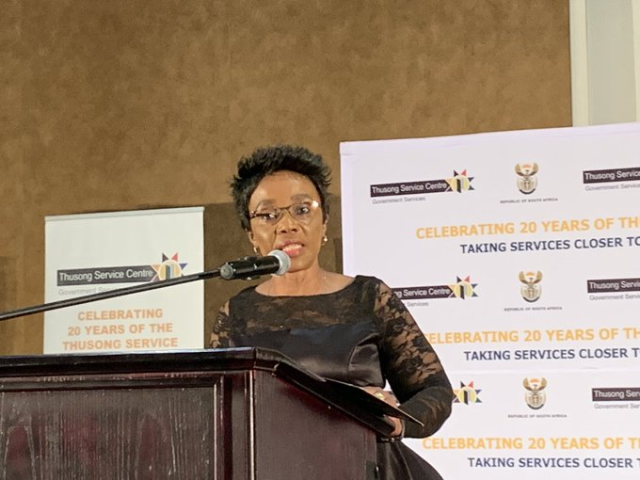South Africa's commitment to disability inclusion has evolved significantly over the past three decades, earning the country international recognition as a leader in the global disability inclusion movement. Marking the conclusion of the 2024 Disability Rights Awareness Month (DRAM), Minister of Women, Youth, and Persons with Disabilities, Sindisiwe Chikunga, highlighted the progress made during a parliamentary debate on Tuesday.
Before the dawn of democracy in 1994, government programs for people with disabilities were steeped in a welfare-based approach, rooted in the perception of disability as a personal misfortune. These programs often sought to "rectify the individual and their circumstances," focusing on rehabilitation rather than inclusion.
Chikunga noted that this narrative has undergone a profound transformation. “For the democratic government, disability rights are not merely a matter of advocacy -- they are a constitutional imperative enshrined in our Bill of Rights,” she said. Section 9 of the Constitution prohibits discrimination based on disability and guarantees equality and human dignity.
The 2015 White Paper on the Rights of Persons with Disabilities further articulates the government's vision for advancing disability rights and creating a society inclusive of all its members.
Legislative and Policy Milestones
Over the past 30 years, South Africa has prioritized integrating disability inclusion into its legislative framework. Recent advancements include:
Framework on Self Representation: Ensures that state-owned enterprises (SOEs) include persons with disabilities on their boards.
National Strategic Framework on Reasonable Accommodation: Establishes standards to support persons with disabilities in various settings.
Universal Access and Design Framework: Implements norms and standards to ensure accessibility in the built environment.
Inclusive Education: Laying the Foundation
The government has made significant strides in inclusive education, addressing infrastructure, resources, and training for educators to holistically support learners with disabilities.
Achievements in education include:
Increasing the number of special schools from 295 in 2002 to 489 in 2022.
Doubling the number of learners in special schools from 64,000 in 2002 to 139,000 in 2022.
Expanding the number of full-service schools from 30 in 2002 to 832 in 2022.
Growing the number of learners with disabilities in ordinary schools from 77,000 in 2002 to 121,000 in 2022.
The Department of Basic Education and the Ministry of Women, Youth, and Persons with Disabilities have formed a task team on inclusive education, ensuring schools are equipped with necessary infrastructure, teaching resources, and trained educators.
For tertiary education, the Department of Higher Education and Training has introduced the Strategic Policy Framework on Disability, which mainstreams disability considerations across institutions. Technical Vocational Education and Training (TVET) colleges are now equipped to accommodate students with disabilities and provide essential support.
Empowering Through Skills and Social Security
South Africa recently launched Phase One of the National Skills Fund Disabilities Programme, a transformative initiative with a budget of R1 billion. It aims to empower persons with disabilities through specialized skills training. Minister Chikunga commended the initiative, calling it a pivotal step toward inclusive economic participation.
The government also provides monthly Disability Grants to support persons with disabilities financially. Moreover, the recognition of South African Sign Language (SASL) as the 12th official language marks a historic milestone in promoting linguistic and cultural inclusion.
Looking Ahead
Despite these strides, Minister Chikunga emphasized the need for continued deliberate and targeted interventions across government departments. “We will advocate for programs that create clear opportunities for persons with disabilities to participate in all aspects of society,” she said.
South Africa's journey over the past 30 years demonstrates the power of progressive policy and legislative change. As the country reflects on its achievements, it also renews its commitment to building an inclusive future where every citizen can thrive.











